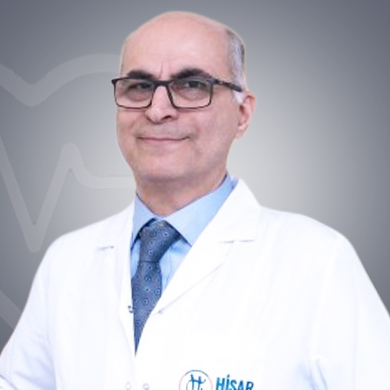
30+ Years of experience
Speaks: English
A doctor who diagnoses and treats brain and nervous system conditions is called a neurologist. Neurology is a branch of medicine that deals with the whole brain and nervous system, so, neurologists have the ability to treat a number of conditions related to the brain. " Some of the conditions neurologist Dr. Aytac Yigit treats are:
The neurologist treats diseases that affect the nervous system, such as: infections (viral, bacterial, fungal) Cancers (benign, malignant) Neurological diseases are common, and the risks of developing them increase with age.
A primary care physician usually refers a patient to a neurologist in case they experience any of the following symptoms:
A person can also have problems with his/her senses due to sensory dysfunction. In such cases, they should also consult a neurologist to seek treatment.
Doctor Aytac Yigit is available from 10 am to 4 pm (Monday to Saturday). The doctor is not available on Sunday. It is likely that the doctor is not available for consultation, so it suggested that you confirm the doctor’s availability before you visit him/her.
The list of popular procedures that Dr Aytac Yigit performs is given below::
The doctor is committed to delivering quality care to his patients. The neurologist has performed a large number of procedures with a high success rate and adheres to medical protocols to ensure patient safety and speedy recovery..The doctor has rich experience in performing complex cases with accuracy. The specialist is proficient in using the latest techniques to perform the procedures and ensures that the patient recovers quickly.

Share Your Experience about Dr. Aytac Yigit

A neurologist is a specialist who diagnoses and treats conditions of the spinal cord, brain, and nerves. This could include muscle diseases as well as disorders that affect thinking and behavior. A neurologist has completed specialist training after becoming a doctor. Neurologists enroll in a fellowship program to have deep experience in their specialty area because they are responsible for diagnosing and treating the complex conditions of the nervous system. Neurologists always try to know the cause of a condition before starting treatment. For this, they conduct different tests and procedures in order to diagnose and treat neurological disorders.
Diagnostic tests and procedures are important tools that help doctors confirm and rule out neurological disorders or other medical conditions. The tests that help neurologists diagnose underlying neurological disorders are listed below::
Sometimes, you might need to have some more tests for the accurate diagnosis of neurological disorders. These tests are:
Here are some of the top symptoms that suggest you should consult a neurologist:
Headaches: Headaches can be common, and might happen sometimes as a result of fatigue, stress, and hunger. In case of persistent headaches, consult your doctor.
Change in Vision: Blurred loss of vision could result from the aging process, exposure to bright light, and an injury to the eye. But they can be a sign of more severe neurological conditions.
Dizziness: It is common to feel dizzy when you have a head cold. But chronic dizziness is not normal. This could be a sign of different ailments and should be evaluated.
Memory Loss: Mild forgetfulness is a normal symptom but when it begins to affect your everyday life, it is time to consult your doctor. Memory loss is a symptom of a number of neurological conditions.